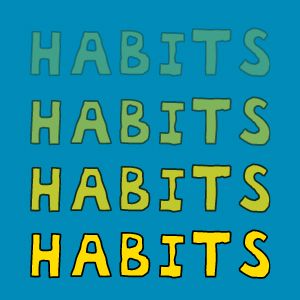Happiness
Instead of Feeling That I’m Never Going to Finish…
I Can See Large Chunks Getting Done.
Posted August 30, 2014

I’m writing my next book, Better Than Before, about how we make and break habits– an issue very relevant to happiness. Each week, I post a before-and-after story submitted by a reader, about how he or she successfully changed a habit. We can all learn from each other. If you’d like to share your story, contact me here.
To hear when Better Than Before goes on sale, sign up here.
This week’s story comes from Nyssa Hattaway.
I am a devout member of my church. All of my life I have been taught to develop the habits of church attendance, tithing, daily prayer and daily Scripture study. I have easily been able to practice all of them except the Scripture study. I am an avid reader, but for some reason I just hadn’t found my groove on this one.
My cohorts had given lots of advice informally and from the pulpit. Read a chapter a day. Just read a verse a day. Study by topic not chronologically. Set a time for 10 minutes and read what you can in that time, and so forth. You can imagine in my 20+ years of adulthood how many unsuccessful starts and stops I have had, and you can probably guess the guilt that accompanies it.
Somewhere along the way, someone gave me booklet with a 40 day reading plan. Assignments are made daily and by the end of the 40 days, the entire volume of Scripture is complete. I decided to try it. Instead of just giving a little, this program requires 5-6 chapters daily, somewhere between 45-60 minutes of reading. Instead of feeling that I’m never going to finish and that I’m slowing plowing through the book, I can see large chunks of it getting done. I am already half way through the volume! I never thought that by committing to MORE I would have more success, but it demands planning, time and commitment, and that is where I was falling short in previous attempts. I think this strategy could be applied to many habits and wondered if you have encountered it? I will continue to study the Scriptures in this way even after the 40 days as I finally have a habit that works for me.
This example illustrates one of the most important things I’ve learned about habits — actually, the most important thing I’ve learned. The secret to good habits is to know what works for you.
Using the Strategy of Distinctions allows us to figure out how we’re different from other people, how we might tackle habits in a way that suits our particular idiosyncrasies. It’s a Secret of Adulthood: we’re more like other people, and less like other people, than we suppose.
One distinction is: Do you prefer to aim big or aim small?
Some people have better success changing a habit when they start small. A series of small but real accomplishments gives them the energy and confidence to continue. For instance, a person who wants to write a novel might resolve to write one sentence each day. Or a person who wants to start running might resolve to run for one minute.
This approach is often emphasized as the best way to form a habit. But in fact, as the example above illustrates, some people do better when they’re more ambitious.
Sometimes, counter-intuitively, it’s easier to make a major change than a minor change. When a habit is changing very gradually, we may lose interest, give way under stress, or dismiss the change as insignificant. A big transformation creates excitement and energy and a sense of progress, and that helps to create a habit.
As Steve Jobs reflected, “I have a great respect for incremental improvement, and I’ve done that sort of thing in my life, but I’ve always been attracted to the more revolutionary changes. I don’t know why.”
How about you? Do you do better with small changes or big changes?
Also ...
As I mentioned, I working on my next book, Better Than Before, about how we make and break habits. The most fascinating subject ever. Sign up here to be notified when it goes on sale. Or if you want to read the whole book condensed into 21 sentences, read here.
Other posts you might be interested in...
Before And After: Use The Accountability Of Weight Watchers And A Personal Trainer.
Story: Use A Short Phrase To Sum Up A Large Idea.
How The Strategy Of Scheduling Helped Me Make A Habit.
Before And After: “I Struggled For Years With Getting Myself To Ring My Grandfather.”




